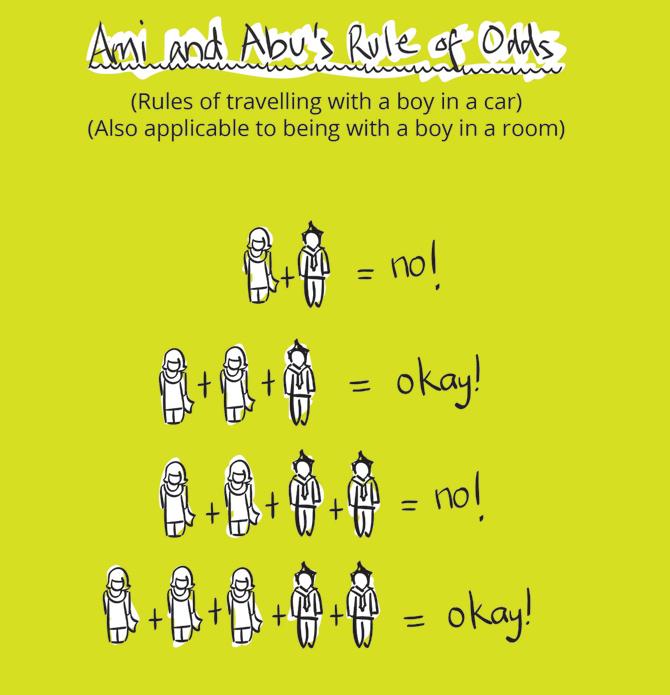Written in Karachi, the story of a teenage girl battling gender bias, will resonate with women everywhere

ADVERTISEMENT
The title, The Suppressed Anger of the Pakistani Obedient Daughter, you'd think would immediately alienate women in India. However, in the same week that Why Loiter meets with the Pakistan-based Girls at Dhabas, a book that is hilarious in both illustrations and language throws a sobering light on the culture of everyday sexism that both countries share.

Sarah, the protagonist of Ayesha Tariq's recently released Sarah: The Suppressed Anger of The Obedient Pakistani Daughter, is a near 18-year-old dealing with parents who say she is "too young to learn driving", but "too old to wear jeans". And, definitely not too young to consider marrying a mustachioed man lined up by a nosey aunt.
Then, there's the constant reminder of life's unfairness in the guise of her brother who gets to step out whenever he wants, while she is told to work on a project at home because it's time for maghrib (post sunset prayer).

Excerpted with permission from Penguin Books India from Sarah: The Suppressed Anger of The Obedient Pakistani Daughter by Ayesha Tariq
Tariq, 27, is a designer, illustrator and improv artist, who works as creative head at the Citizen's Archive of Pakistan, a non-profit that aims to preserve the cultural history of Pakistan. The book, however, was born when Tariq was at the Karachi-based Indus Valley School of Art and Architecture. "I had to present a few thesis ideas and I had probably just emerged from an argument at home. So, I thought I would write a book on anger and how to deal with it," says Tariq over the phone from Karachi, adding that she didn't let her family know about her subject until much later.
"I was afraid they'd be offended, although it wasn't a portrayal of them." For her research, Tariq reached out to other women, asking them about their experiences. Ami, Abu, Bhaiyya are, thus, amalgamations of a collective experience. Her family took it well, though. Well, almost. "It became something that everyone could relate to. My mom and khaalas (aunts) would have a conversation about it, and I realised that this book is relevant across ages. My brother, however, would look at it and ask 'when did I do this to you?' But, it's a stereotype and I'd tell him that this is not about him," says Tariq, who has an older and younger sister.

Ayesha Tariq. Pic/Amean J
The thesis however, got her only a B grade.
In 2014, over three years after this, Tariq presented the book at Dastaan-e-Pakistan, a local comic con. "I felt I was the odd one out since it wasn't a sci-fi genre. But, then a journalist wrote about it and it became popular." Once word was out, a book agent contacted her and then came the title of published author.
From the thesis to now, the book has undergone a change. While it continues to be written in a mix of Roman Urdu and English, the foldouts were done away with to curtail printing costs.
And she is excited to receive reactions from readers. "While most reactions have been positive — I think these are situations most people can relate to — there are people who have called me delusional on the title's Facebook page." But, she shrugs off the negativity.
It might induce humour, but she knows her book is a bitter pill, that most will find tough to swallow.
 Subscribe today by clicking the link and stay updated with the latest news!" Click here!
Subscribe today by clicking the link and stay updated with the latest news!" Click here!







